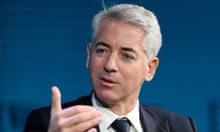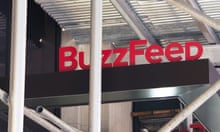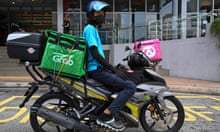Basketball star Shaquille O’Neal does not at first glance seem to have much in common with the UK’s chancellor, Rishi Sunak. While the American sportsman has endorsed Pepsi, the British minister recently confessed to an addiction to Coca-Cola. But last week’s budget suggests they agree on at least one thing: both have jumped on the special purpose acquisition companies (Spacs) bandwagon – the hottest trend in finance.
Spac sponsors – often celebrities such as O’Neal – raise money for a “blank-cheque” company that lists on a stock market. The company then hunts for a privately owned business to invest in. A reverse merger offers the private company quick access to capital and a route to the stock market that is cheaper and easier than a traditional flotation. Once the process is complete, those who bought into the Spac can keep the investment or sell once the purchase is revealed.
A review of the London Stock Exchange rules, commissioned by Sunak and published last week, has suggested that loosening restrictions on Spacs is a priority. Yet some are already warning the UK may be joining a race to the bottom that could end with losses for retail investors.
The idea of taking a cash shell and hunting for assets to buy has been around for centuries. Advertising giant WPP, and Melrose, controversial buyer of the engineering firm GKN, both started out as cash shells.

While some investors were suspicious that Spacs offered a way of avoiding scrutiny, ventures such as Sir Richard Branson’s Virgin Galactic in 2019 and vehicles launched by prominent hedge fund investor Bill Ackman helped popularise them.
Now a new generation of much glossier Spac sponsors has emerged. Last month, Joanna Coles, a former editor of Cosmopolitan magazine, led a $4.7bn Spac deal that listed an obscure financial infrastructure company, Apex Clearing, on the New York Stock Exchange. She intends to use it to invest in “disruptive” technologies.
In the US, an annual trickle has turned into a flood, fuelled by waves of monetary stimulus from central banks and newly emboldened retail investors. In 2020, 248 Spac vehicles were listed in the US, raising the equivalent of £63.5bn, according to data firm Dealogic. Amsterdam, which is vying with London for financial supremacy post-Brexit, has snagged a piece of the action, with a vehicle launched by the founder of LVMH, Bernard Arnault, and former UniCredit boss Jean Pierre Mustier.
The UK has so far missed out on the gold rush: in the same period British Spacs raised a meagre £30m.
The loss of UK-based companies such as Arrival, an electric van and bus maker that listed on the Nasdaq and is now merging with a New York Spac, has added a sense of urgency.
The government’s review, led by Jonathan Hill, a former EU commissioner for financial services, has recommended a shake-up – removing a requirement for trading in Spac shares to be suspended during a takeover so investors have time to scrutinise the deal. Lord Hill also recommended that the regulator look into what data Spacs need to disclose.
Speed and ease are the main attractions for companies like Arrival. The cash is already in place when they start negotiations with a Spac, and there is no need for a time-consuming roadshow with investment banks, or for a lengthy prospectus laying out why they would be a good investment.
Another key benefit is that deals are much less likely to fall through, said Adam Birnbaum of New York investment firm GP Bullhound, who is working on multiple Spac deals. Easing the rules to match New York could see “a proliferation of deals in the UK”, he said.
But London investors have already seen what can go wrong. In 2010, Nat Rothschild, a scion of the famous banking family, raised more than £700m in a cash shell that became Bumi, and took over an Indonesian mining company. But things went sour and the deal resulted in years of governance troubles and fines.
Roger Barker, director of policy and governance at the Institute of Directors, backed most of the Hill review’s conclusions, including allowing the founders of tech companies such as Deliveroo to retain more control. Removing restrictions on Spacs was an exception, he said.
“[The rules] are there for a reason,” said Barker. “One can say they’re onerous, but they’re there to ensure good governance and investor protection.”
The first big blow-up of the latest US Spac wave has not yet happened – but investors have already been stung. David Schwimmer, boss of the London Stock Exchange, warned on Friday of “froth” in the US Spac market, amid concerns it might be adding to a growing equity bubble.
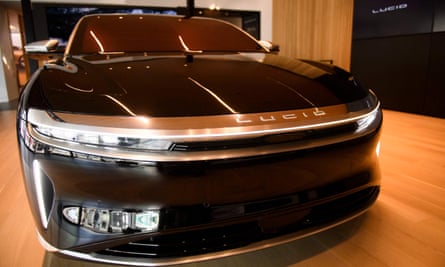
Nikola, a US company that hopes to make hydrogen fuel cell trucks, soared in value after a Spac merger in June 2020, but rapidly fell back after a mis-selling scandal. Retail investors last month poured money into a Spac merging with Lucid Motors, a hopeful rival to Tesla in electric cars. The shares crashed when the terms of the deal were revealed to be less favourable than speculators had hoped.
Yet the UK government appears to endorse the view that flinging the door open to US-style Spacs will allow it to attract tech companies, and much of the City is on board. The final rules will be set in late 2021 after a consultation by the Financial Conduct Authority, the City regulator.
“The reality is that these Spacs will go somewhere, so subject to adequate protections, it is surely better to attract them to London than allow this business to go elsewhere,” said Paul Lynam, a former banker who is set to lead Equiniti, a company that handles payments to shareholders.
Alasdair Haynes, chief executive of Aquis, a smaller rival to the London Stock Exchange on which Spacs can already list, said it was “absolutely right” for the UK to be looking at what was needed to build its markets.
He added that transparency was key, and Spacs could be useful as long as investors knew exactly what they were getting into: “Some of these will succeed and some will fail.”
Celebrity takeovers
Spacs have attracted the attention of high-flyers, celebrities and entrepreneurs. These are some of the most prominent:
Joanna Coles, former editor of Cosmopolitan The British-born journalist has charted an unusual path from editing the glossy magazines Marie Claire and Cosmopolitan to pulling off billion-dollar corporate finance deals. Her $400m vehicle, Northern Star Investment Corp II, merged with Apex Clearing, a company that she said provided the “invisible architecture” behind the retail fintech boom.
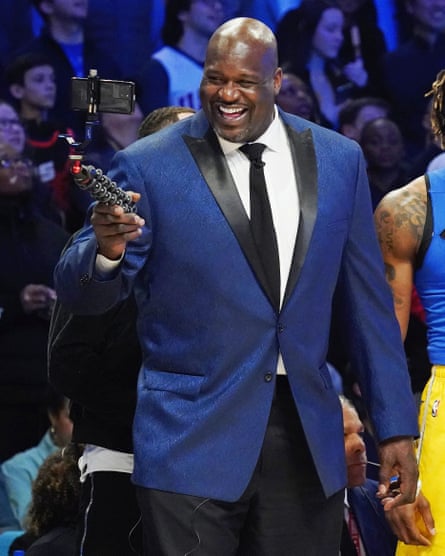
Shaquille O’Neal, retired US basketball player O’Neal is widely regarded as an all-time basketball great, but his career has also taken a surprising turn to high finance. He serves as strategic adviser to the $250m Forest Road Acquisition Corp, which last month announced a three-way merger with fitness companies the Beachbody Company and MYX Fitness. Martin Luther King Jr’s sons and three former Disney executives are also involved, and the same team has already filed to launch Forest Road Acquisition II, a Spac which will look for a media company to buy.
Serena Williams, tennis player In December, Williams, the most successful player in women’s tennis history, joined the board of Jaws Spitfire Acquisition, a Spac that raised $300m to target consumer technology companies. It was the second Jaws Spac started by Barry Sternlicht, an investor whose firm, Starwood Capital, has interests in hotels and property.
Alex Rodriguez, retired baseball player Not to be outdone, baseball star Rodriguez is chief executive of Slam, a Spac that has filed to raise $500m. It will look at investments ranging from media and entertainment to consumer technology – but it won’t be buying sports franchises. The American football quarterback and activist Colin Kaepernick – who famously took a knee during the US anthem to protest against police brutality – has also put his name to a Spac.
Bill Ackman, hedge fund manager Ackman made enormous trading profits at the start of the coronavirus pandemic by betting that the markets would crash. He has been at the centre of the Spac boom, raising a massive $4bn pot for Pershing Square Tontine Holdings. Ackman’s funds will invest another $1bn to $3bn in the vehicle to boost its firepower. The short-term lets company Airbnb turned down an approach from the Spac last summer, according to the Financial Times.
Lucid Motors, electric car maker Lucid Motors boss Peter Rawlinson was a top engineer for Tesla before striking out on his own, with backing from Saudi Arabia. Lucid’s reverse merger with the $1.8bn Churchill Capital IV garnered massive retail investor enthusiasm amid a mania for companies hoping to be part of the electric car revolution. When the Lucid merger landed it proved to be the biggest Spac deal to date, giving it a $24bn valuation. However, some investors are already nursing steep losses after bidding up the price of shares sixfold before the merger terms were revealed.
Sir Richard Branson, entrepreneur British entrepreneur Branson’s Virgin Galactic hopes to start a new chapter in the space age; the company also played an important role in the Spacs age with its October 2019 reverse merger. Branson had looked to secure investment from the Saudi Arabian government, but it pulled out after the (short-lived) outcry following the Saudi-sanctioned murder of the journalist Jamal Khashoggi. Instead he turned to New York-listed Social Capital Hedosophia, an investment vehicle run by the former Facebook executive Chamath Palihapitiya. Palihapitiya’s second Spac was a $4.8bn merger with the SoftBank-backed property startup Opendoor.



